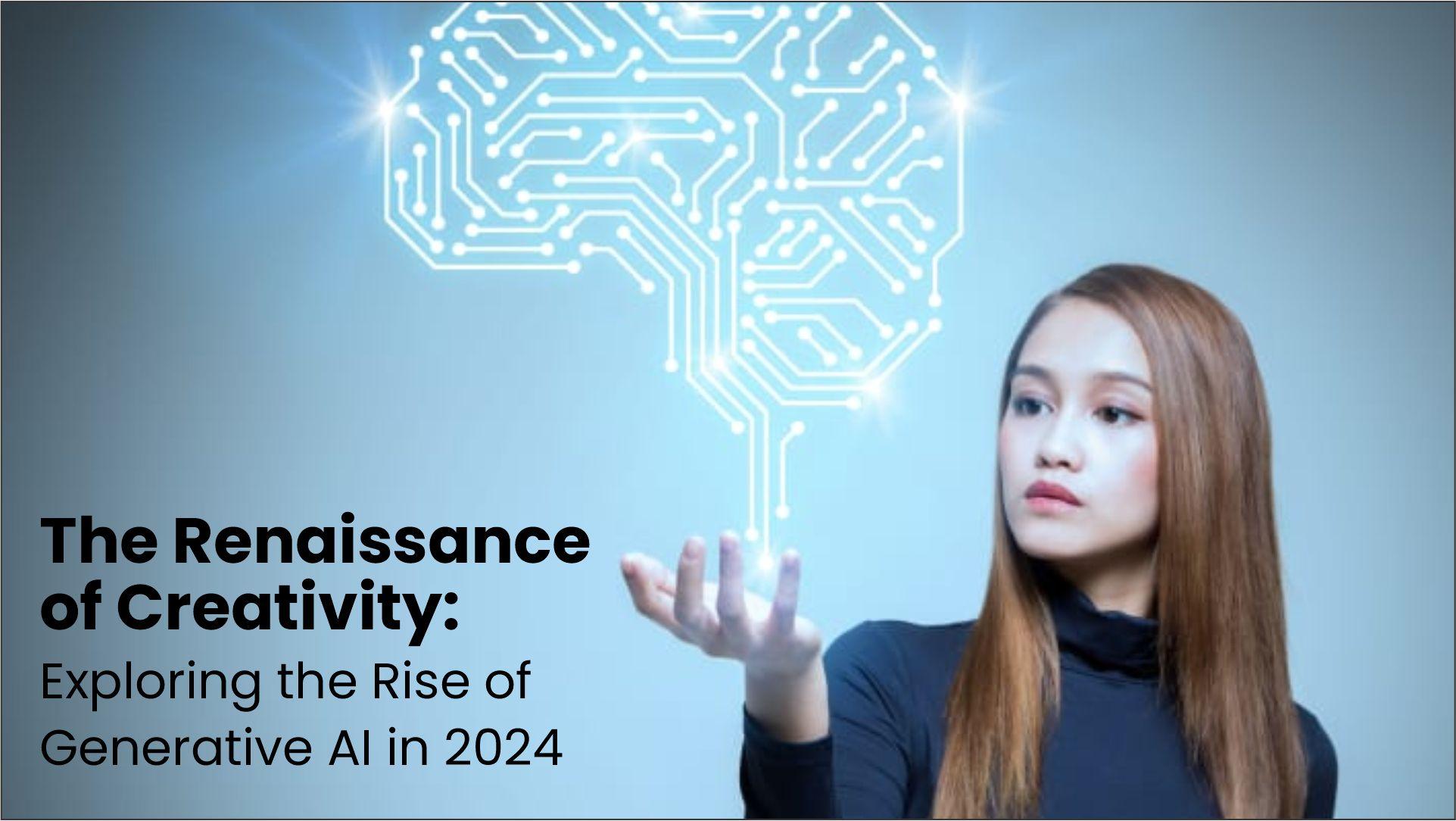News
Read the Montek Today
Explore the news article about technology,
Digital Marketing and global staffing.
The Renaissance of Creativity Exploring the Rise of Generative AI in 2024

In 2024, the realm of artificial intelligence (AI) is witnessing a profound transformation, fueled by the emergence of generative AI technologies that push the boundaries of creativity, imagination, and innovation. Generative AI, powered by deep learning algorithms and neural networks, enables machines to generate original content, from artworks and music compositions to poetry and design concepts, autonomously. This comprehensive news piece delves into the latest trends, advancements, and implications of generative AI in 2024, offering insights into how this revolutionary technology is reshaping industries, fostering artistic expression, and redefining the nature of human-machine collaboration.
1. Unleashing Creativity with AI-Generated Artworks
In 2024, generative AI is revolutionizing the world of art and design, empowering artists, designers, and creators to explore new frontiers of creativity and expression. From AI-generated paintings and sculptures to digital artworks and multimedia installations, generative AI algorithms produce visually stunning and conceptually rich creations that challenge conventional notions of authorship and creativity.
Moreover, generative AI tools and platforms democratize access to artistic expression, enabling individuals with diverse backgrounds and skill levels to explore their creativity and express themselves through digital mediums. By harnessing the power of generative AI, artists and designers can unlock new possibilities for experimentation, collaboration, and innovation in the ever-evolving landscape of contemporary art and design.
2. Revolutionizing Music Composition and Sound Design
In 2024, generative AI is revolutionizing the process of music composition and sound design, enabling musicians, composers, and producers to push the boundaries of sonic experimentation and creativity. From AI-generated melodies and harmonies to algorithmically composed symphonies and soundscapes, generative AI algorithms produce original musical compositions that captivate listeners and evoke emotional responses.
Moreover, generative AI tools and platforms empower musicians to explore new genres, styles, and sonic textures, facilitating collaboration between human creativity and machine intelligence. By embracing generative AI, musicians and composers can break free from traditional constraints, unleash their imagination, and create music that transcends boundaries and resonates with audiences on a deeper level.
3. Transforming Content Creation and Storytelling
In 2024, generative AI is transforming the landscape of content creation and storytelling, enabling writers, filmmakers, and content creators to generate compelling narratives, characters, and story worlds with unprecedented speed and scale. From AI-generated articles and blog posts to interactive narratives and immersive storytelling experiences, generative AI algorithms produce content that engages, entertains, and informs audiences across diverse media platforms.
Moreover, generative AI tools and platforms facilitate collaboration between human writers and AI assistants, augmenting creative workflows and enhancing productivity. By leveraging generative AI, content creators can unlock new opportunities for innovation, personalization, and audience engagement in the ever-evolving digital media landscape.
4. Enhancing Design and Creativity in Industry
In 2024, generative AI is enhancing design and creativity across industries, from architecture and fashion to product design and advertising. Generative AI algorithms enable designers, architects, and engineers to explore new design possibilities, optimize complex systems, and generate innovative solutions to real-world challenges.
Moreover, generative AI tools and platforms facilitate iterative design processes, enabling designers to rapidly generate and evaluate design alternatives, iterate on concepts, and optimize performance parameters. By harnessing generative AI, designers and innovators can accelerate the pace of innovation, unlock new efficiencies, and create products, services, and experiences that push the boundaries of possibility in their respective industries.
5. Ethical Considerations and Human-Machine Collaboration
In 2024, as generative AI technologies continue to advance and proliferate, ethical considerations surrounding AI-generated content, copyright, and intellectual property rights come to the forefront. Questions of authorship, attribution, and ownership raise complex ethical and legal challenges, requiring careful consideration and thoughtful regulation to ensure fairness, transparency, and accountability in the creative process.
Moreover, as generative AI becomes more prevalent in creative industries, the importance of human-machine collaboration and creative oversight becomes paramount. While generative AI algorithms excel at generating novel ideas and content, human creativity, intuition, and judgment remain essential for shaping, refining, and imbuing meaning into AI-generated creations.
Conclusion
In 2024, generative AI emerges as a powerful force for creativity, innovation, and artistic expression, reshaping industries, transforming workflows, and redefining the nature of human-machine collaboration. From art and music to content creation and design, generative AI technologies unlock new possibilities for exploration, experimentation, and imagination, empowering individuals and organizations to push the boundaries of creativity and innovation in the digital age.
As we navigate the opportunities and challenges of generative AI in 2024 and beyond, it is essential to strike a balance between innovation and ethics, fostering collaboration between human creativity and machine intelligence while upholding principles of fairness, transparency, and accountability in the creative process. By embracing generative AI as a tool for creative empowerment and expression, we can unlock new frontiers of creativity and usher in a new era of human-machine collaboration in the digital age.


Date : 2024-05-15 | By : Montek | Category: generative